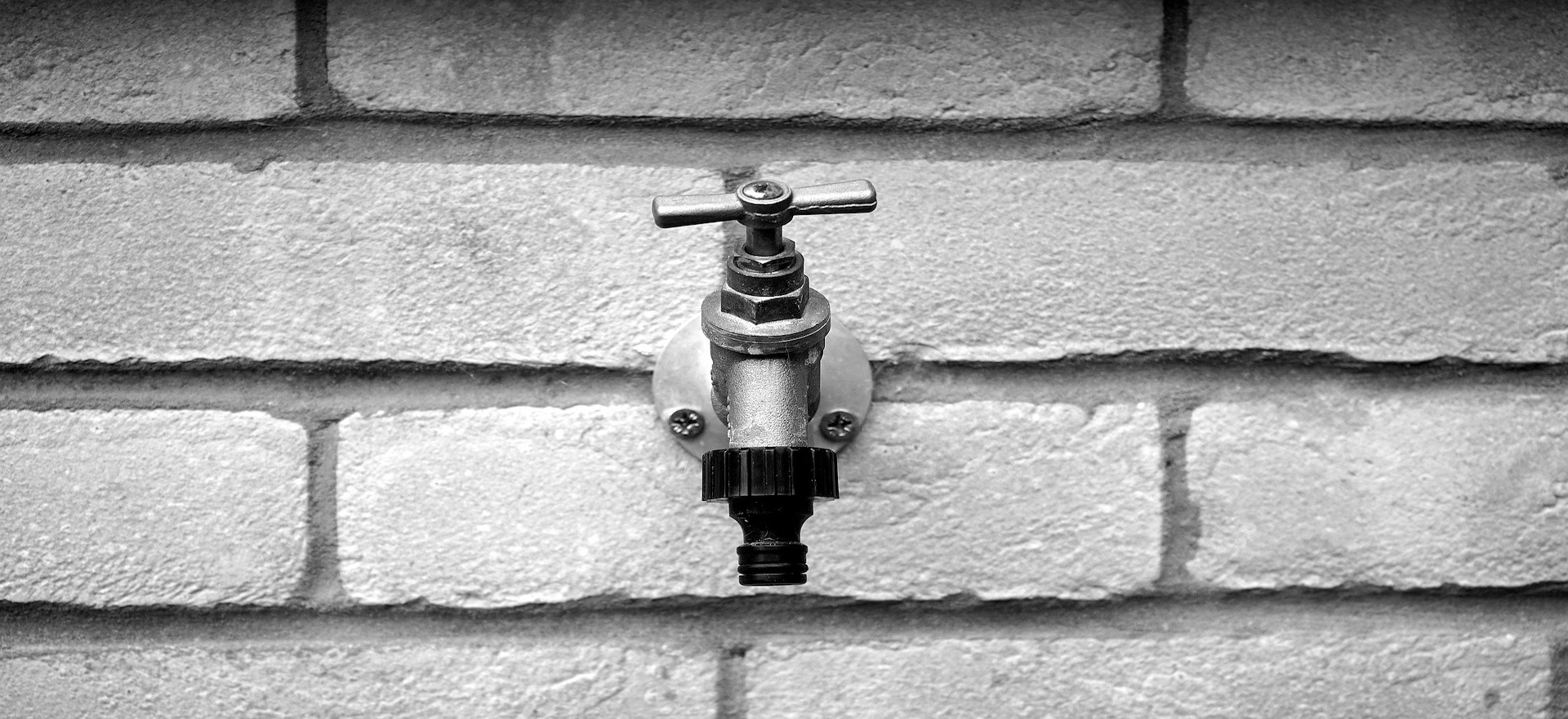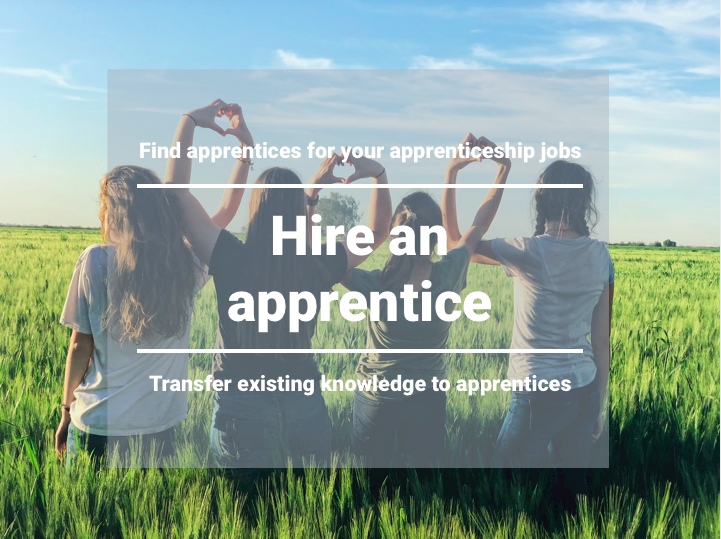Plumbing Apprenticeships UK
"Become a plumber with a plumbing apprenticeship"
Become a plumber by starting an apprenticeship in plumbing and learn all the skills needed to successfully get all cisterns going with your chosen career path as a plumber.
Becoming a plumber is just a pipe dream for some people, however with a plumbing apprenticeship you could be fixing any leaks in your career goals by learning all the skills and knowledge required from industry experts who have already successfully attained their goals through the apprenticeship training route. Check out our guide "How to become an Apprentice Plumber"
If you have any questions about how to become an apprentice please feel free to drop us a line: Contact Us
Become an Apprentice
We've highlighted the top 7 reasons why you should become an apprentice and kickstart your career through the apprenticeship route.
Find out more
Apprenticeship Levels
There are four main types of apprenticeship levels, knowing which one you qualify for is important before you make your application.
Find out more
Apprenticeships Explained
Not quite sure what an apprenticeship is and how an apprenticeship will help you with your career development.
Find out more

From the offset you will be expected to work and learn side-by-side your mentor inheriting as much knowledge as possible and gaining a great understanding of the requirement to become a plumber. After a few months the likelihood is you will be required to be able to perform a few plumbing tasks while they are shadowing you and then overtime you will have gained the confidence and ability to be able to perform those same tasks independently.
The practical elements of Plumbing Apprenticeships can vary from employer or training provider, however overall the fundamentals are all the same and the outcome will also be the same. Day to day task during your plumbing apprenticeship could include:
- Learning how to change fittings
- How to measure and use correct fittings
- Assist with the installation of water systems
- Fault finding and recommendations
- 1st and 2nd Fix observations
- Unblocking drains inside and out of the premises
- Installing appliances such as washing machines and dishwashers
Level 2 Intermediate Apprenticeship (Plumbing City & Guilds NVQ Level 2 Diploma) - Entry requirements for this level is a minimum of 2 GCSE's, you do not need to have any previous experience just a willing to learn and want to become a plumber.
Level 3 Advanced Apprenticeship (Plumbing & Heating Advanced NVQ Level 3 Diploma) - To qualify for the Level 3 Diploma training you must have at least 5 GCSE's or have completed your Level 2 Intermediate Apprenticeship. You can also chose to complete Gas Plumbing modules at this level which will then give you the ability to work on gas heating systems, however you would need to pass and then be on the Gas Safe Register.
To be able to train and work as a plumber on a building or construction site you will be required to hold a valid CSCS card which is the Construction Skills Certificate Scheme.
As a qualified plumber there are a number of routes you could take to move your career forward. Many individuals opt to work self employed which is where could potentially earn much higher, especially if you continue with your training and qualification and gain a gas plumbing certificate. On average a half employed plumber would be expected to earn in the region of £150 - £250 per day once fully qualified.
If you opt for the employment route with either a facilities management, construction or a home maintenance employers you would receive a basic salary in the region of £25,000 - £35,000 depending on where you live in the UK. Sometimes depending on your employer this basic would be accompanied with either an overtime or call-out rate to help bump up your earnings.
There are plenty of opportunities to progress your career in plumbing if you decide on an employment route. Many people who started off as an apprentice plumber are now foreman or project managers responsible for plumbing contracts up and down the country. Many large facilities management or house construction builders prefer to employ people into management roles who have on the tools experience and have worked their way up from an apprenticeship.

Register as an Apprentice!
The first fix to becoming a plumber is to register with us, the UK's leading website for apprenticeship jobs.
After you have registered you can find and apply for as many plumbing apprenticeships as you see fit. You can also set up an apprenticeship alert to have any new plumbing apprenticeship opportunities emailed directly to you saving you time in your search.
Register

Intermediate Apprenticeships are your entry level into the world of apprenticeships more commonly known as a Level 2 Apprenticeship. Level 2 apprenticeships offer an excellent route into further education post 16, as an alternative to staying on at school, whilst receiving on the job training and studying towards a nationally recognised qualification.
During your intermediate apprenticeship you will study part-time with a college or a training provider, 20% of your training, towards an NVQ Level 2 and knowledge based qualification such as a BTEC, together these qualifications are the equivalent to 5 GCSE's grades 9 - 4 (A* - C on the old grading system). You will also receive a Level 2 Functional Skills in Maths and English if you don't already have them.
An Intermediate Apprenticeship is great for learning work related skills as apposed to being given more responsibility. This level of training will make you work ready and train you in the hands on skills required to undertake the responsibility of the task and give you the employability skills you need to be successful.
Qualifying Criteria
There is no formal qualifying criteria for a Level 2 Intermediate Apprenticeship however some employers may ask for a minimum of 2 GCSE's to be able to join their apprenticeship programme.

Advanced Apprenticeships or commonly known as Level 3 Apprenticeships are the equivalent to doing 2 A-Levels and are the next level from an intermediate apprenticeship. Level 3 apprenticeships are great for you to start once you have completed your GCSE's and have attained the correct grades to be able to start at this level.
Starting at the advanced level even if you already have A-levels enables you to gain on the training, of which some employers prefer you to have before starting a Higher or Degree apprenticeship.
Just like an intermediate apprenticeship you will be required to spend at least 20% of your time studying with a college or training provider to be able to achieve the qualifications. On completion of you r apprenticeship you will achieve the equivalent of 2 A-Levels in the form of an NVQ Level 3 and a knowledge based qualifications such as a BTEC diploma.
Qualifying Criteria
To qualifying for a Level 3 advanced apprenticeship many employers ask for a minimum of 5 GCSE's which must include Maths and English, this is why an intermediate apprenticeships gives you these qualifications on completion. Although an advanced apprenticeships is the equivalent of 2 A-Levels some employers may add A-Levels as their requirement at this level also.
Find companies advertising advanced apprenticeship jobs on our website.

Higher Apprenticeships are your Levels 4 and 5 qualifications and enable you to study towards a HNC or HND respectively whilst at Level 5 you can also attain a foundation degree which is great if you want to continue in your studies towards a bachelors degree.
During your higher apprenticeship training you will be required to studying part-time with a training provider, college or university which along with your on the job training will enable you to train towards a Level 4 or 5 NVQ and BTEC diploma along with their respective HNC or HND qualification. Higher apprenticeships can take up to four years to complete.
As a higher apprentice you will be given a lot more responsibility which may include managing people or teams or even responsible for managing projects. You will be supported by your employer along side your mentors and tutors making sure to advise and guide you along the way during your apprenticeship programme.
Qualifying Criteria
To qualifying for a higher apprenticeship you will need to have achieved and completed at least a Level 3 Apprenticeship or have 5 GCSE's grades 9-4 which must include Maths and English and 2 A-Levels.
Find companies advertising higher apprenticeship jobs on our website.

Degree apprenticeships were introduced in September 2015 and have been receive with open arms both by employers and apprentices alike. Also known as Level 6 or 7 apprenticeships the degree level apprenticeship enables you to study towards a Bachelors or Masters degree.
You can start a degree apprenticeships straight after your advanced apprenticeship level or alternatively if you want to gain more on the job training before the Level 6 programme you can overlap from a higher apprenticeship programme. Many employers are now partnering with leading universities across the country to offer degree level apprenticeships to help advance your learning opportunities.
Just like studying at university a degree level apprenticeship takes between 3 to 6 years to complete you will achieve this by on the job training with your employer and training provider and then part-time study at the designated university for your apprenticeship course.
Qualifying Criteria
To qualifying for a degree apprenticeship you will need to have at least Level 3 qualifications of 2 A-Levels, NVQ and BTEC or have completely the advanced apprenticeship. Level 6 and 7 are also a natural progression from a higher apprenticeship.
Find companies advertising degree apprenticeship jobs on our website.
FAQs about Plumbing Apprenticeships
Where can I find an apprenticeship in plumbing?
Use our quick and easy search function to find an apprenticeship in plumbing then register to become an apprentice.
Do I have to have previous experience to start a plumbing apprenticeship?
No experience is needed. An apprenticeship will give you the experience and training you require to be able to progress your career as a plumber, then you may even consider progressing to a construction apprenticeship to further develop your skills and knowledge.
What qualifications will I gain during my plumbing apprenticeship?
To become a qualified plumber you would only need to gain an NVQ level two, this will enable you to complete basic plumbing tasks. You can then advance your apprenticeship to the next level through the Advanced Apprenticeship and then continue to a degree apprenticeship in other topics including project management.
How long does a plumbing apprenticeship take?
A plumbing apprenticeship takes between 12-18 months to complete at the NVQ Level 2 stage and then a further 4 years to complete a Level 3 training programme to include heating.
How much will I be paid as an apprentice plumber?
The average salary for an apprentice plumber in the UK ranges between £10,000 - £20,000 depending on where you live in the UK.
Do I have to do an apprenticeship to qualify as a plumber?
You don't have to do an apprenticeship to gain the relevant qualifications, some colleges offer the course for you to train part-time or evenings.
With an apprenticeship you gain on the job training plus a wage which other training does not offer.
Unblock your potential and kickstart your career as a plumber.
Advertise apprenticeships
Is your business a plumbing or facilities management company and you are looking to hire a trainee or two and considering the apprenticeship training route?
Did you know you can receive funding from the government through the apprenticeship levy fund?
Hiring apprentice plumbers will benefit your company and help develop a workforce for your future growth.
 FAQs about Plumbing Apprenticeships
Apprentice Plumber
FAQs about Plumbing Apprenticeships
Apprentice Plumber